The fifth month of pregnancy
Between the 17th and 20th week of pregnancy, the 5th month of pregnancy begins, which means it’s half-time. The belly can hardly be hidden any more and you suddenly have a lot of energy again. The uterus grows and slowly but surely starts to press on other organs. At the end of the 5th month of pregnancy, you can feel it three fingers below your belly button.
Developmental stage of the baby – the foetus in the 5th month
After the baby’s organs have grown in the fourth month, arms and legs finally grow in the 17th week. The baby hears, smells and tastes, its eyes react to brightness and it does gymnastics in the womb. This is why most women notice the first movements of the baby in the 5th month of pregnancy. This may feel a little unusual at first, but it is a good sign – it signals that the baby is doing well. Although the baby is now already active, it still sleeps up to 20 hours a day, as the brain, skeleton, muscles, digestive tract and the now working organs need a lot of rest to develop and do their work. At the end of the 5th month, your baby weighs about 250 to 290 grams and is 16 to 20 cm tall, or about the size of a mango.

Did you know that the baby’s heart beats much faster than the mother’s? Your baby’s heart beats around 120-160 per minute.
Symptoms and physical changes of the expectant mom in the 5th month of pregnancy
For many women, now is the most pleasant time of pregnancy. They often feel a surge of energy and their skin and hair shine. The growing belly is not only visible, but also noticeable on the scales through a significant weight gain. It also becomes increasingly difficult to find a comfortable sleeping position. A nursing pillow can often help.
Typical physical symptoms between the 17th and 20th week are:
- Energy boost
- Weight gain
- Itchy skin
- Beginning stretch marks
- Slightly swollen hands and feet
- Lower back pain
- Indigestion
- Increased appetite
- Difficulty finding a comfortable sleeping position
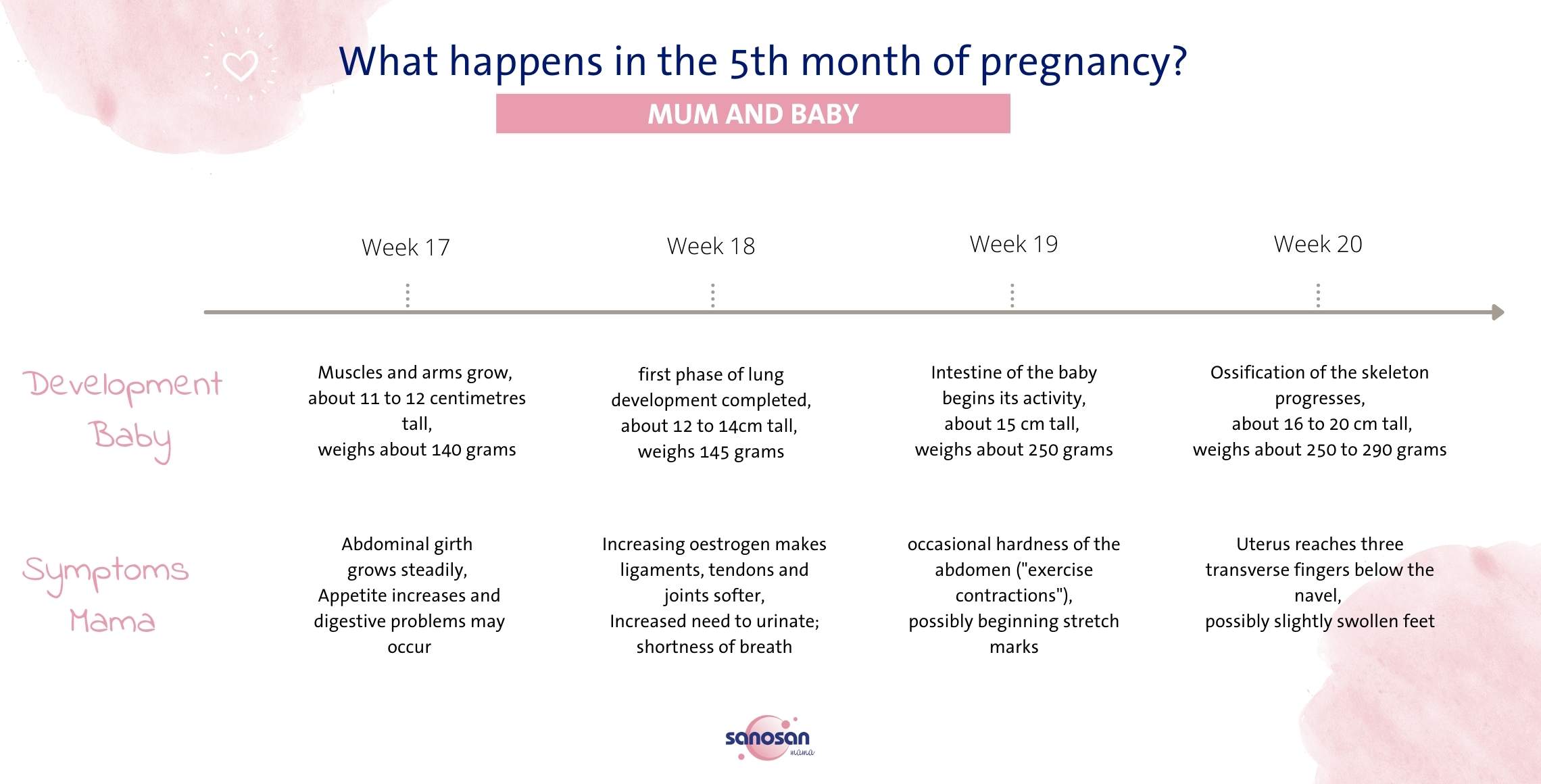
The second major ultrasound in the 20th week of pregnancy
The second major screening examination (screening ultrasound II) takes place between the 18th and 20th week of pregnancy. During this examination, the baby is measured completely: the different circumferences of the head, the length of the thigh bone and the circumference of the abdomen. Your baby’s general physical development will also be assessed. Your doctor will also check the amount of amniotic fluid and the position and structure of the placenta.
If necessary, an additional detailed look at the foetus’ organs can be carried out. To do this, you will be referred to a special prenatal diagnostician who will carry out the screening ultrasound II b. The heart, stomach and urinary bladder, among other things, are also examined in detail.

Through modern technologies, it is now also possible to see the baby in real spatial plane through an ultrasound scan. This is a so-called 3D or 4D ultrasound. However, due to a new radiation protection regulation from 2019, these examinations are only possible if there is a medical necessity.
Heartburn during pregnancy – What to do?
Many pregnant women notice frequent heartburn in the 5th month of pregnancy. Heartburn occurs when acidic stomach fluid rises into the oesophagus, which happens more often when the sphincter between the stomach and oesophagus no longer functions properly. The hormone progesterone, which is essential for maintaining pregnancy, causes smooth muscles to loosen, and so does the muscle ring between the stomach and the oesophagus. This circumstance and the fact that the stomach empties more slowly during pregnancy favour reflux. In addition, as pregnancy progresses, the growing uterus pushes upwards against the intestines and stomach, making it easier for the acid to rise. To relieve heartburn, you can do the following:
- Wear comfortable and loose clothing that does not constrict the abdomen (no belts)
- Do not lie down immediately after eating
- Do not eat anything for about two hours before going to bed
- It is better to eat small meals rather than two large ones
- Sleep with your upper body slightly elevated
- Make sure you get regular exercise and fresh air
There are also foods that increase acidity and thus heartburn. If one is affected by heartburn, it can help to avoid foods such as citrus fruits, legumes, onions, sweets, vinegar and to avoid spicy and fatty foods. It is better to eat foods such as rusks, white bread, oatmeal, milk, almonds, hazelnuts and green vegetables, as these bind the stomach acid and thus relieve heartburn during pregnancy.




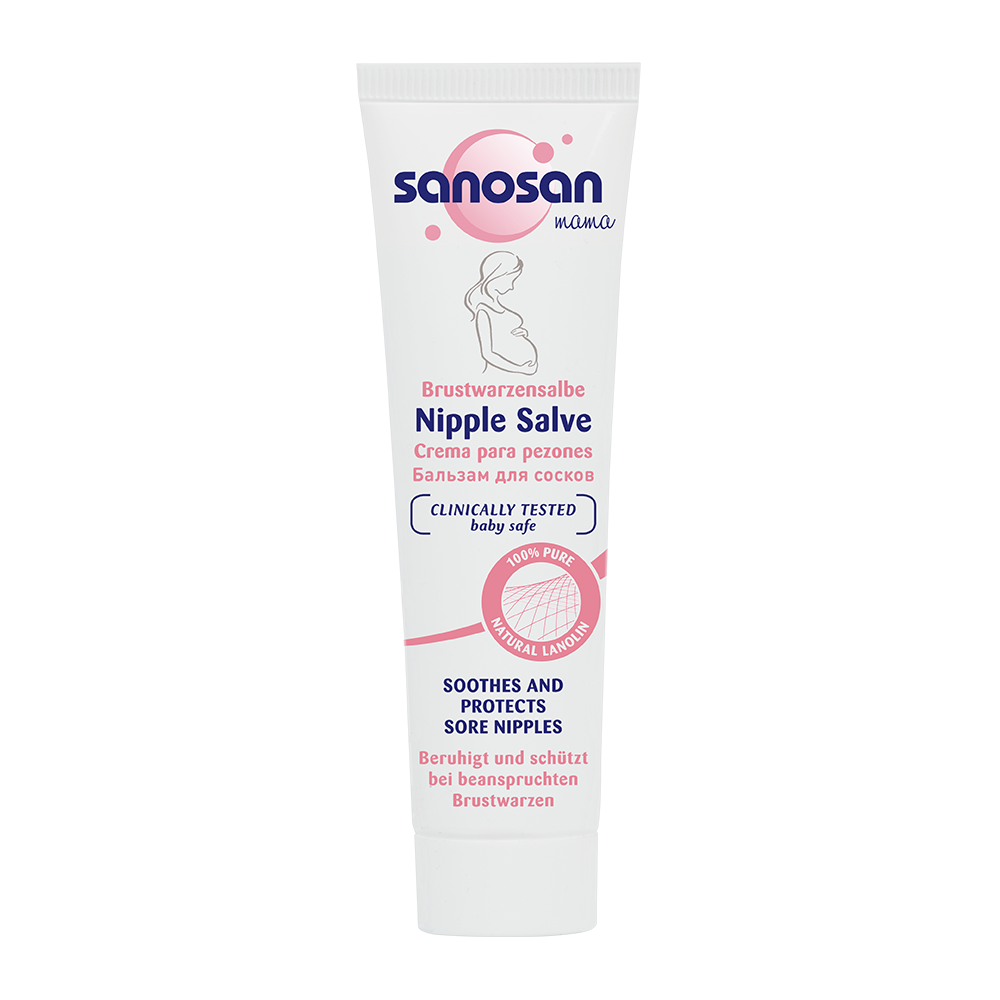
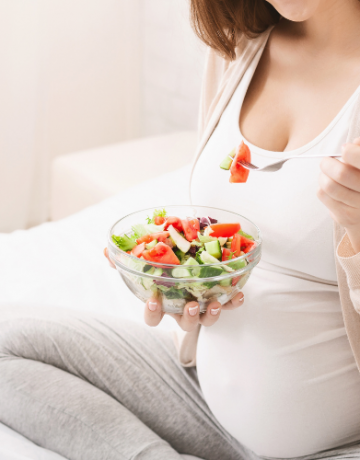
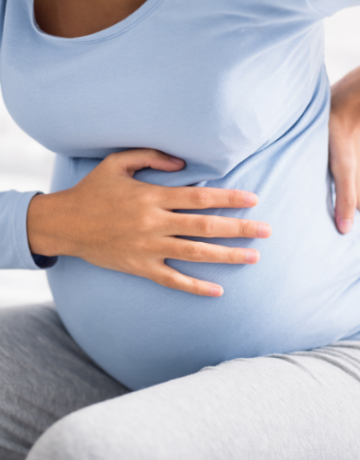

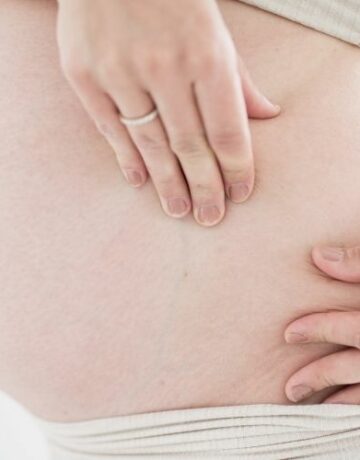

Comments (0)